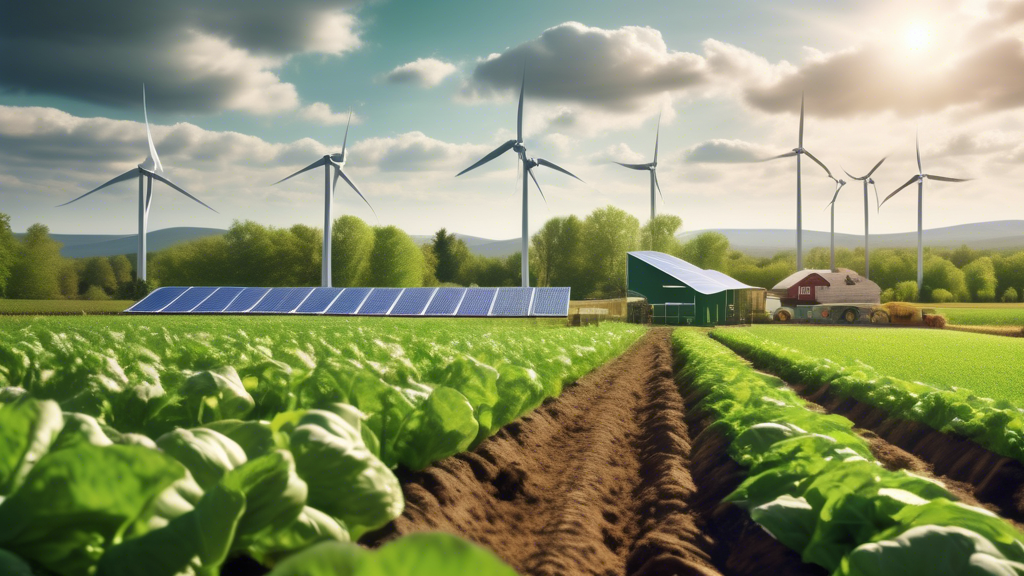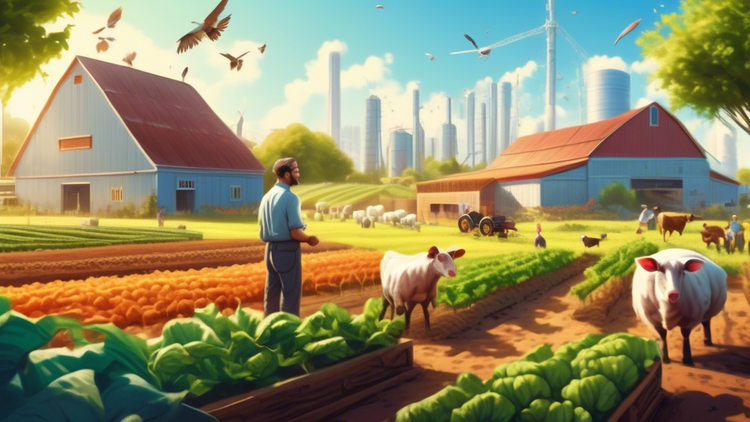Empowering New Hampshire's farming sector to adapt to and withstand climate change.

As the effects of climate change become increasingly evident, it is crucial for New Hampshire's farming sector to adapt and build resilience. The state's agricultural industry plays a vital role in its economy and food security, making it essential to empower farmers with the tools and knowledge needed to withstand the challenges posed by a changing climate.
One key strategy for adapting to climate change is adopting sustainable farming practices. These practices include:
- Conservation tillage, which reduces soil erosion and helps maintain soil moisture
- Cover cropping, which improves soil health and reduces the need for synthetic fertilizers
- Crop rotation, which helps control pests and diseases while improving soil fertility
- Precision agriculture, which optimizes resource use and minimizes environmental impact
By implementing these practices, farmers can build healthier, more resilient soil that is better equipped to withstand the challenges of drought, heavy rainfall, and extreme temperatures.
Diversifying Crops and Livestock
Another important strategy for adapting to climate change is diversifying crops and livestock. By growing a variety of crops and raising different types of animals, farmers can spread their risk and reduce their vulnerability to crop failures or market fluctuations. Additionally, some crops and livestock may be better suited to changing climate conditions than others, making diversification a smart long-term strategy.
Investing in Infrastructure and Technology
To further empower New Hampshire's farming sector, investment in infrastructure and technology is crucial. This includes:
- Improving irrigation systems to maximize water efficiency
- Upgrading storage facilities to minimize post-harvest losses
- Adopting renewable energy sources to reduce greenhouse gas emissions and lower operating costs
- Leveraging precision agriculture tools, such as soil sensors and drone technology, to optimize resource use and improve crop yields
By investing in these areas, farmers can not only adapt to climate change but also improve their overall efficiency and profitability.
Building Knowledge and Community
Finally, empowering New Hampshire's farming sector requires building knowledge and fostering a strong sense of community. This can be achieved through:
- Providing education and training programs on sustainable farming practices and climate adaptation strategies
- Encouraging knowledge sharing and collaboration among farmers, researchers, and extension services
- Supporting local food systems and direct-to-consumer sales, which can help build resilience and foster a sense of community
By working together and sharing knowledge, New Hampshire's farming community can collectively adapt to and withstand the challenges posed by climate change.
Here's a thought to consider: empowering New Hampshire's farming sector to adapt to climate change is not only essential for the survival of the agricultural industry but also for the well-being of the state's residents. By supporting farmers in their efforts to build resilience, we can ensure a more sustainable and secure food future for all.
Looking for updates? Sign up to our newsletter for weekly snippets.
#PurelyPlanted #WholesomeHarvest #PlanetPlatter





